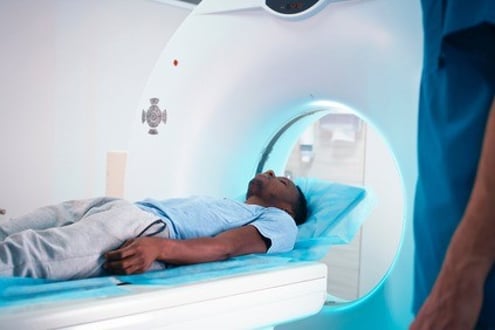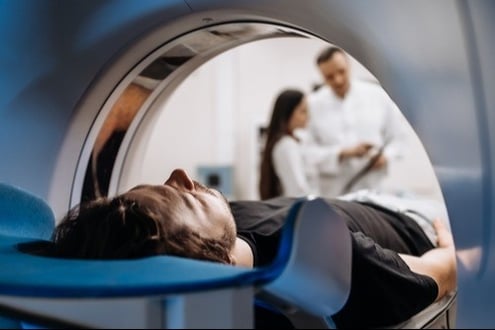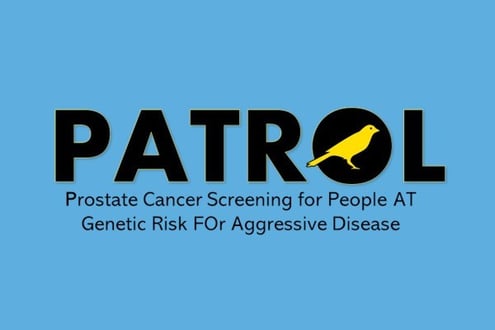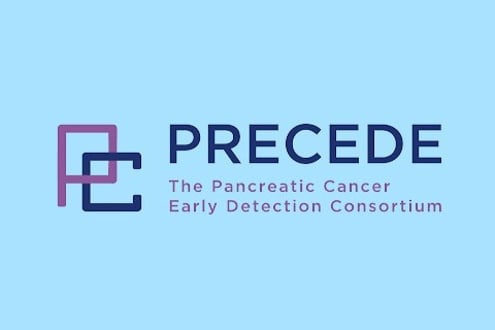ATM: Options for Managing Cancer Risk
Risk Management for People with Inherited Mutations
People with mutations have options for managing their increased cancer risk. Experts at the National Comprehensive Cancer Network (NCCN) created guidelines for people with an mutation to manage their cancer risk. We recommend that you speak with a genetics expert who can look at your personal and family history of cancer and can help you decide on a plan for managing your risk.
NCCN recommends that all people with an inherited mutation receive education on the signs and symptoms of ATM-related cancers. NCCN guidelines for specific cancers are listed below.
People with an mutation may also qualify for clinical trials looking for more effective screening, prevention or interception of cancer.
Get notified when updated information becomes available.
SIGN UP FOR CONTENT UPDATES|
Beginning Age |
Recommendation |
Additional Information |
|
25 |
Learn to be aware of changes in your breasts. |
Self exams may be most informative at the end of the menstrual cycle. |
|
25 (or earlier based on youngest age of breast cancer in the family) |
Breast exam by doctor (also known as a clinical breast exam) every 6-12 months. |
|
|
30-35 |
Have a discussion with your doctor about the risks and costs of yearly breast with and without contrast. |
|
|
40 (or earlier based on family history of breast cancer) |
Yearly . |
|
|
No designated age |
More research is needed to show whether people with inherited mutations benefit from risk-reducing mastectomy. Discuss with your doctor about the option of risk-reducing mastectomy based on your personal and family history of cancer. |
Risk-reducing mastectomy lowers breast cancer risk by 90%, but has not been shown to improve survival. Even after double mastectomy, some breast tissue, and therefore cancer risk remains. |
|
Have a discussion with your doctor about the benefits, risks and costs of medications to lower the risk for breast cancer with your doctor. |
Tamoxifen or other estrogen-blocking drugs may lower breast cancer risk. Medications or vaccines are being studied in clinical trials. |
|
|
75 |
Have a discussion with your doctor about whether to continue, stop or change breast screening. |
|
|
Source: NCCN Guidelines: Genetic/Familial High-Risk Assessment: Breast, Ovarian, Pancreatic, , vs. 3, 2026. |
||
Types of pancreatic cancer screening tests
There are two types of tests that are used to screen for pancreatic cancer in high-risk people.
- MRCP (Contrast-enhanced magnetic resonance cholangiopancreatography) is a special type of imaging that looks closely at the pancreas, liver, gallbladder, bile duct and pancreatic duct to find abnormalities such as cancer.
- EUS (Endoscopic ) involves passing a tiny scope with an attached probe down the esophagus to the stomach. This allows doctors to look closely at the pancreas.
Researchers are testing new approaches to pancreatic cancer screening and prevention through clinical trials.
Pancreatic cancer guidelines
|
Beginning Age |
Family History |
Recommendation |
|
50 (or earlier based on the youngest case of pancreatic cancer in the family) |
For mutation carriers regardless of family history. |
|
|
Source: NCCN Guidelines: Genetic/Familial High-Risk Assessment: Breast, Ovarian, Pancreatic, v. 3, 2026. |
||
|
Beginning Age |
Recommendation |
Additional Information |
|
No set age |
Become aware of ovarian and primary peritoneal cancer symptoms. Report to any symptoms that persist for several weeks and are a change from normal to your doctor. Routine ovarian cancer screening using transvaginal and a blood test has not shown benefit and is not recommended. |
Symptoms of ovarian cancer include:
|
|
No set age |
More research is needed to show whether people with inherited mutations benefit from risk-reducing surgery to remove their ovaries and . Currently, experts recommend that you have a discussion with your doctor about the option of risk-reducing surgery based on your family history of cancer. |
If you decide to have risk-reducing surgery:
|
|
Before age 50 |
Researchers are studying whether the removal of the only (), while delaying until closer to the age of natural menopause is a safe option for lowering risk in people who are not ready to remove their ovaries. If you are interested in this approach, talk with your doctor about the benefits and risks, and consider enrolling in a research study. |
|
|
No set age |
Oral contraceptives (birth control pills) have been shown to lower the risk for ovarian cancer in people with mutations. Have a discussion with your doctor about the benefits and risks of oral contraceptives for lowering ovarian cancer risk. |
Research on the effect of oral contraceptives on breast cancer risk has been mixed. |
|
Source: NCCN Guidelines: Genetic/Familial High-Risk Assessment: Breast, Ovarian, Pancreatic, , vs. 3, 2026. |
||
|
Beginning Age |
Recommendation |
|
40 |
|
|
Source: Source: NCCN: Genetic/Familial High-Risk Assessment: Breast, Ovarian, Pancreatic, , v. 3, 2026 |
|
Other cancers
There isn’t enough research to show that people with an mutation benefit from extra screening or prevention for other types of cancer. For this reason, experts recommend following general population screening guidelines and considering your family history when managing these risks. National guidelines exist for screening the following cancers:
Participate in Prevention Research
The screening and prevention studies below are enrolling people with mutations. To search for more studies, visit our Search and Enroll Tool.
Vaccine for People at High Risk for Pancreatic Cancer
Clinicaltrials.gov identifier: NCT05013216
Using a Shorter Type of MRI as a Screening Tool for People at High Risk for Prostate Cancer
Clinicaltrials.gov identifier: NCT05384535
Screening Study for Pancreatic Cancer in People with Inherited Mutations
Clinicaltrials.gov identifier: NCT05058846
PATROL Study: Prostate Cancer Screening for People AT Genetic Risk FOr Aggressive Disease
Clinicaltrials.gov identifier: NCT04472338
Screening Study for Men at High Genetic Risk for Prostate Cancer
Clinicaltrials.gov identifier: NCT03805919
Pancreatic Cancer Early Detection for People at High Risk
Clinicaltrials.gov identifier: NCT04970056
Screening in Men at High Risk of Developing Prostate Cancer
Clinicaltrials.gov identifier: NCT05608694
More Resources
Stories from the Community
June 11, 2021









